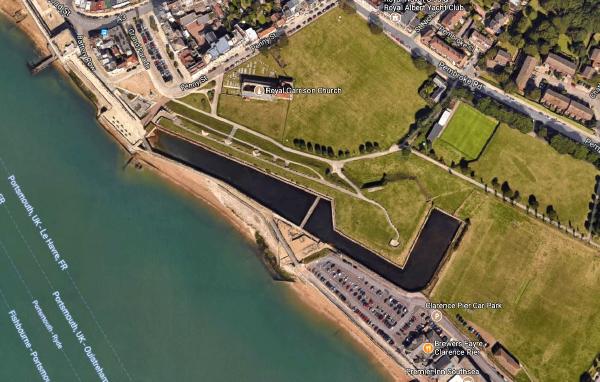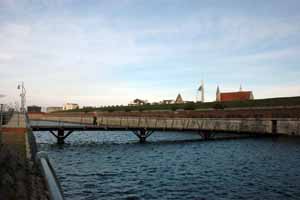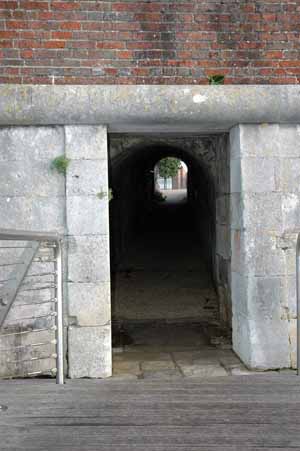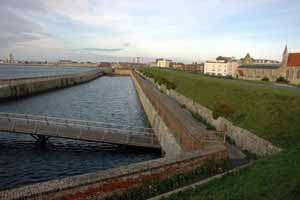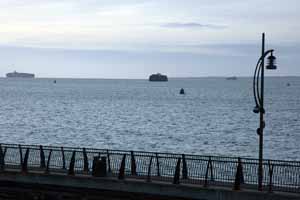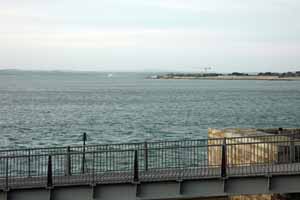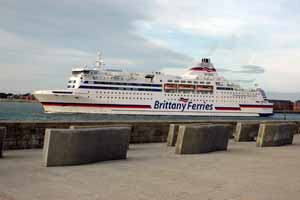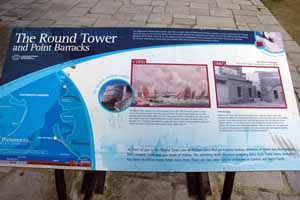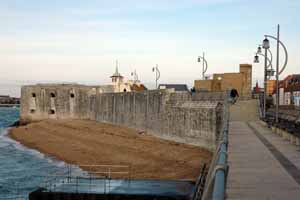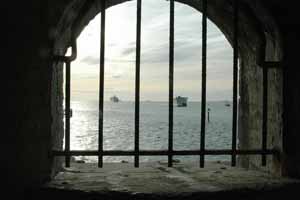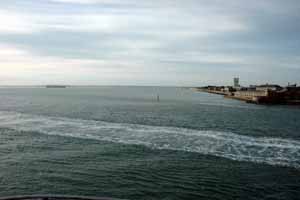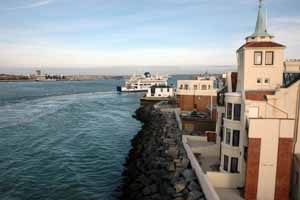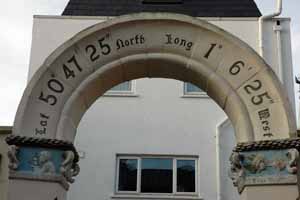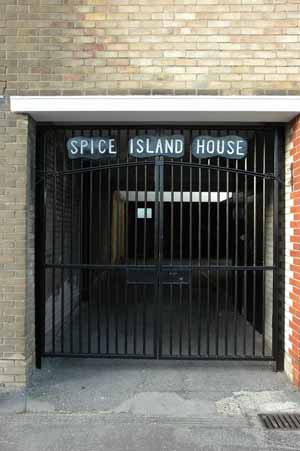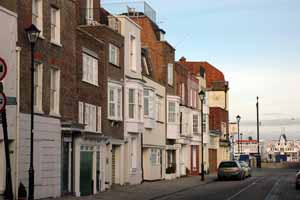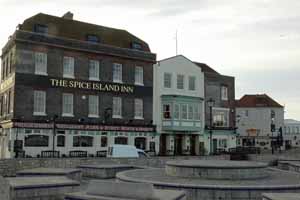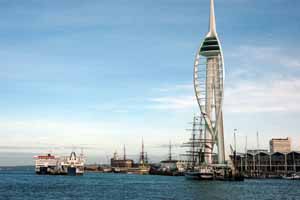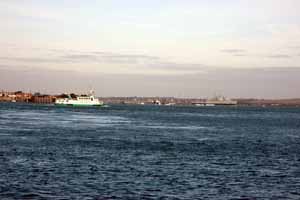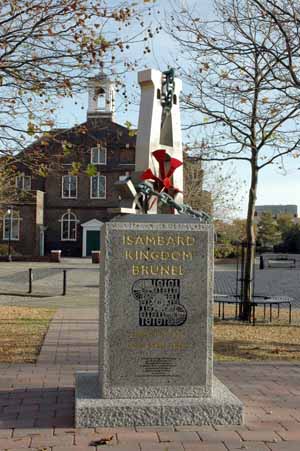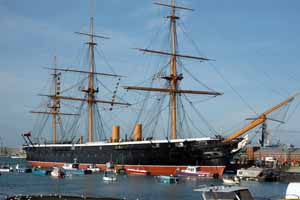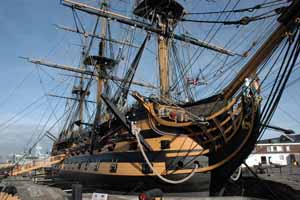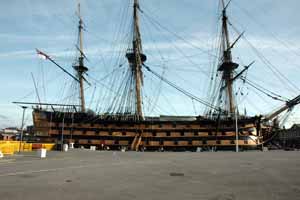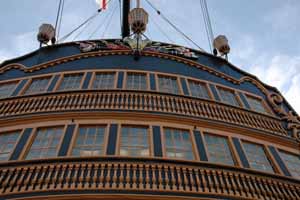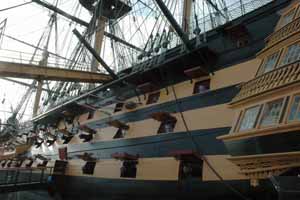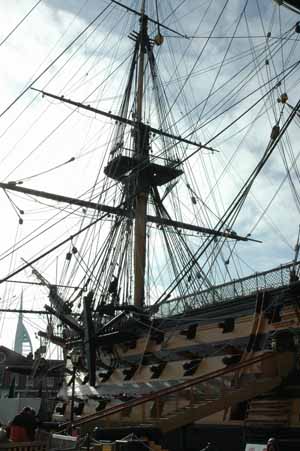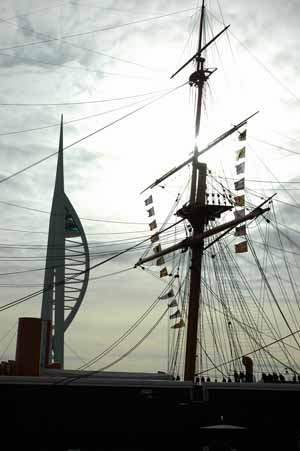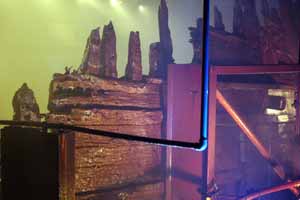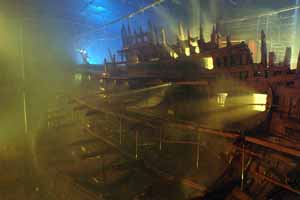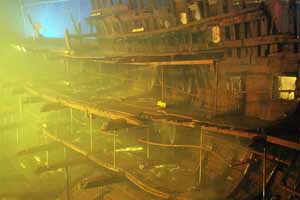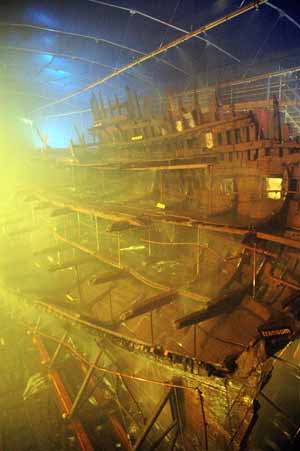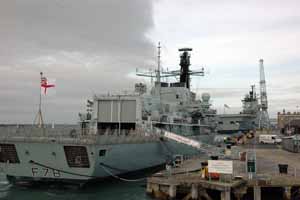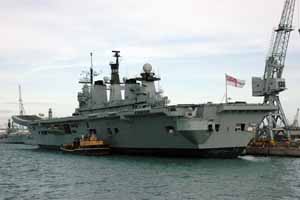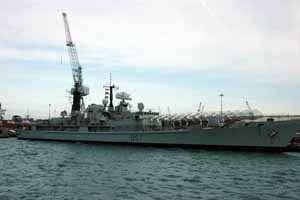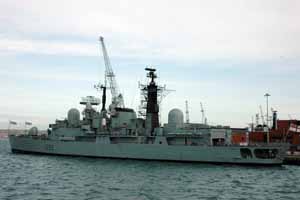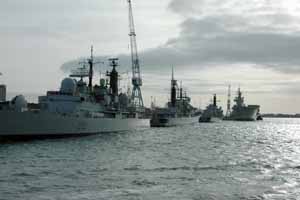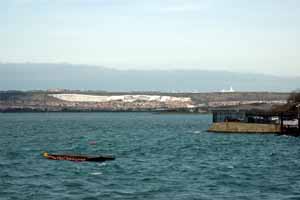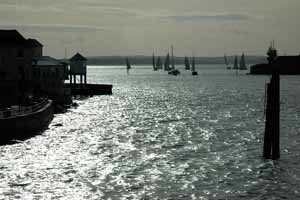A Few Days in England - Nov 2007
DAY 14: Portsmouth
I found myself finishing work late on Friday afternoon (well Friday evening really, it
was 1830 and dark...) so I booked into a hotel on the beachfront at Southsea for
two nights. The next morning I walked around the edge of the harbour, across the old fortifications of
the Spur Redoubt and on to the old Naval Dockyard.
The Spur Redoubt
Southsea's claim to fame is being the departure point for Admiral Nelson and his
flagship HMS Victory. The Spur was built as a series of defences against
seaborne invasion of Britain. Today it is a popular walk around the Southsea
coast, where you can watch the ferries plying the waters of the Solent and catch
a glimpse of the Isle on Wight. This aerial view shows the Spur moat as the long
dark shape above and left of the car parks. The Royal Garrison Church, with only
half of its roof is in the green field.
Now for the photos
|
Sign board telling the story of The Spur |
Walkway over the Spur moat. |
The Spur moat |
|
A sallyport in the wall of The Spur. These passageways are low and
narrow so that invaders could only emerge in single file. |
Overlooking the Spur and the moat. |
The Royal Garrison Church at Southsea. Half the church was destroyed by
fire and as a memorial to sailors who lost their lives in WWII it has
been left without its roof. |
|
Looking out across the Solent |
View across to Gosport |
One of many ferries that pass close inshore |
|
The next part of the old defences was the Round Tower.... |
...seen here looking north |
Looking out of the Tower through one of the gun ports, there is a wide
view across the English Channel. |
|
View south across the Channel from the Tower... |
...and the view north into Portsmouth. |
Just in case you get lost, this helpful doorway arch gives your
location. Handy if you have a GPS... |
|
especially as the building next door might convince you of a different location |
View down Broad Street, which turns left at the end... |
...into Bath Square and the Spice Island Inn. |
The Old Naval Dockyard
The high point of the tourist circuit in Portsmouth is the Naval Dockyard and
all the old and new naval vessels stored there. The jewel is HMS Victory,
restored after the Battle of Trafalgar and the death of Nelson. Lying alongside
HMS Victory is the remains of the Mary Rose, Henry VIII's flagship that sunk in
the Solent in July 1545. This oblique aerial image shows HMS Victory and the
large white tent that surrounds the Mary Rose.
From Southsea, the tall masts of the old ships are clearly visible, together
with the Millenium Tower built in the centre of Portsmouth.
|
Tall masts and the Millennium Tower |
Looking north up Portsmouth Harbour |
Near the entrance to the old Dockyard is this memorial to Isambard
Kingdom Brunel - famous engineer. |
|
HMS Warrior, the first iron-clad warship, launched in 1860 |
HMS Victory from off the starboard bow |
The bow of HMS Victory |
|
Side-on view |
The stern and the great cabins of Nelson and Hardy |
Port side and lines of cannons |
|
Cannons and rigging |
...A mast of HMS Victory and the Millennium Tower |
Part of the Mary Rose inside its protective cocoon |
|
The housing is full of water spray, with the lights changing frequently
so that they do not damage the woodwork |
...Part of the hull |
Closeup of the remains |
The Royal Navy At Anchor
Portsmouth remains the home port for the Royal Navy as it has
done since Henry VIII's time, when he lost the Mary Rose on her maiden voyage.
Today the fleet is much smaller...
|
HMS Kent - a frigate |
HMS Illustrious - aircraft carrier |
D97 or HMS Edinburgh is a type 42 destroyer, launched in 1983 |
|
D92 HMS Liverpool, another Type 42 destroyer. |
The
fleet berthed at Portsmouth |
RFA Diligence - a repair ship |
|
The view northward to the high land behind Portsmouth. The
buildings on the skyline are Portsdown West, part of the Ministry of
Defence. |
Also
looking north |
Now southwest towards the lowering sun |
Back to previous day --------- ---------
 Forward to next day Forward to next day
Return to Trip Index
Last updated: 30/06/2017
|
